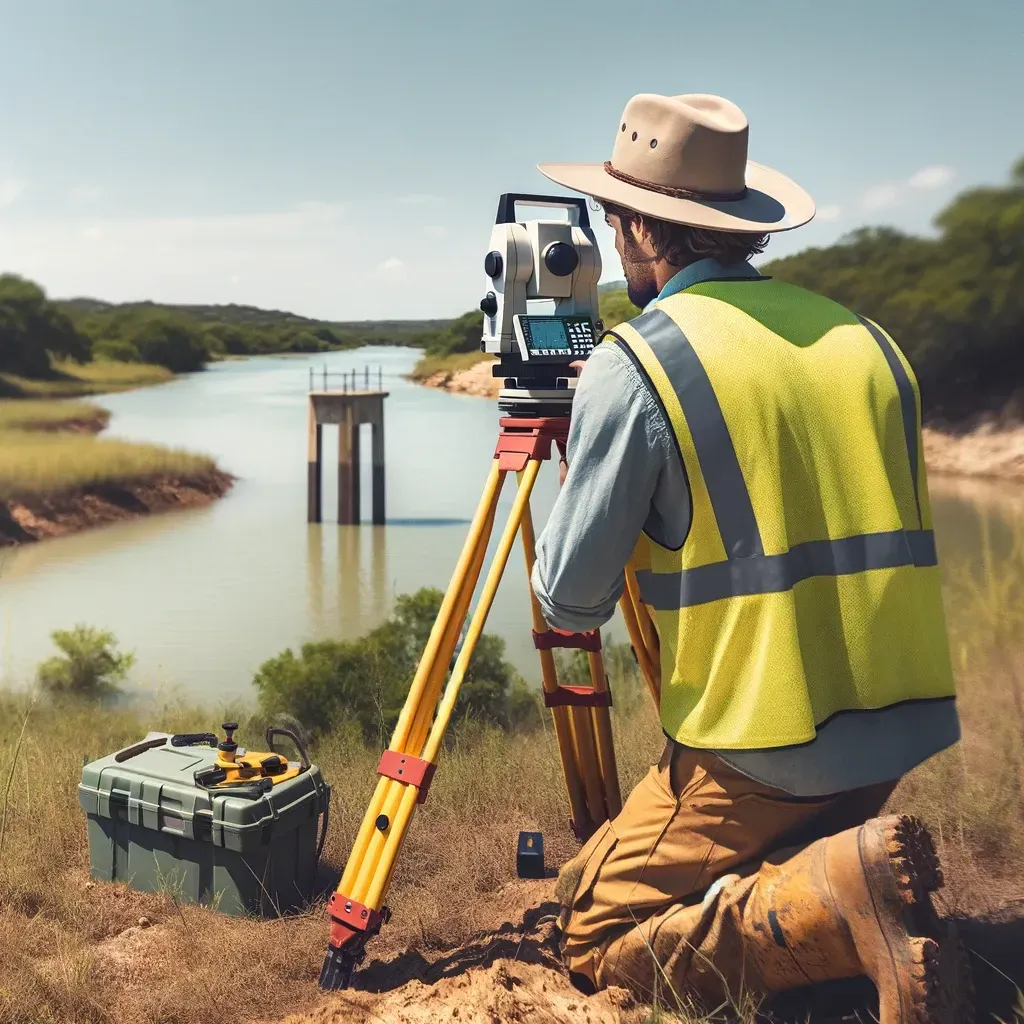Surveying Texas Since 1980 Family Owned, Customer Devoted | Firm #10045400 | 281-556-6918
See Our Latest Blogs

Importance of Elevation Mapping for Texas Hill Country Projects
"Texas, often referred to as the Lone Star State, is a thriving hub for economic growth and innovation, making it an attractive destination for commercial real estate investment." - Chris Evans
The Critical Role of Elevation Mapping in Texas Hill Country Development
Texas’s Hill Country, known for its rolling hills, scenic beauty, and unique topography, is a prime location for commercial development. However, the region’s natural features pose challenges that require careful planning and analysis. Elevation mapping is a vital tool for developers, engineers, and planners working on projects in the Hill Country. By providing precise data about the land’s contours and elevation changes, elevation mapping ensures sustainable, compliant, and successful development.
What Is Elevation Mapping?
Elevation mapping involves the use of advanced surveying technologies to measure and represent the vertical dimensions of a property. The data is used to create detailed topographic maps that show:
Contour lines indicating changes in elevation
Drainage patterns and natural water flow
Steep slopes and flat areas
Potential flood zones
These maps serve as a foundation for site planning, design, and construction in the Hill Country’s varied terrain.
Why Is Elevation Mapping Essential for Hill Country Projects?
1. Managing Topographical Challenges
The Hill Country’s uneven terrain can complicate construction and infrastructure development. Elevation mapping identifies slopes, valleys, and high points, helping developers design projects that work with the land rather than against it.
2. Ensuring Drainage and Flood Prevention
Proper water management is critical in the Hill Country, where heavy rainfall can lead to flooding. Elevation mapping highlights natural drainage paths and low-lying areas, enabling developers to design effective stormwater management systems.
3. Supporting Regulatory Compliance
Local zoning and environmental regulations in the Hill Country often require developers to account for elevation changes and protect natural features. Elevation maps provide the data needed to meet these requirements.
4. Enhancing Construction Planning
Elevation mapping ensures that foundations, roads, and utilities are designed for stability and longevity. This reduces the risk of structural issues and costly repairs down the line.
5. Preserving Environmental Features
By understanding the land’s natural contours, developers can minimize disruption to the environment, preserving the Hill Country’s beauty and ecological integrity.
Key Applications of Elevation Mapping in the Hill Country
Site Selection and Feasibility Studies
Before purchasing land or beginning a project, developers use elevation mapping to assess whether a site is suitable for their needs. The data helps identify buildable areas and potential challenges.
Infrastructure Design
Roads, bridges, and utility networks in the Hill Country must navigate elevation changes. Elevation maps guide engineers in designing infrastructure that is safe, efficient, and cost-effective.
Construction Staking
Surveyors use elevation data to mark exact locations and heights for buildings, ensuring they are constructed according to plan.
Environmental Mitigation
For projects near sensitive areas like streams or hillsides, elevation mapping helps developers implement mitigation measures that protect natural resources.
Challenges Addressed by Elevation Mapping
The unique characteristics of the Hill Country create challenges that elevation mapping helps resolve, such as:
Steep Slopes
Building on steep terrain requires careful design to prevent erosion, landslides, and instability. Elevation mapping identifies these areas and guides safe development.
Flood Zones
The region’s flash flooding risk makes it essential to avoid building in flood-prone areas. Elevation mapping pinpoints these zones and supports effective water management.
Rocky Terrain
The Hill Country’s rocky soil can complicate excavation and foundation work. Elevation mapping helps developers plan around these obstacles.
Partnering with Professional Surveyors for Elevation Mapping
Accurate elevation mapping requires advanced tools and experienced surveyors who understand the complexities of the Hill Country’s terrain. At South Texas Surveying, we specialize in providing:
High-resolution topographic maps
Elevation data for site planning and design
Construction staking and grading support
Compliance documentation for zoning and environmental regulations
Our team uses cutting-edge technology, including GPS and LiDAR, to deliver precise and reliable results for commercial projects.
Conclusion
Elevation mapping is an indispensable tool for commercial development in Texas’s Hill Country. By providing detailed insights into the land’s contours and features, it enables developers to plan, design, and build projects that are sustainable, compliant, and successful.
At South Texas Surveying, we are dedicated to helping developers navigate the unique challenges of the Hill Country with expert elevation mapping services. Contact us today to learn how we can support your next project.
Delivering Land Surveys with Attention to Detail
George Owens
Commercial Broker

I have worked with many surveying companies, but South Texas Surveying stands out for their exceptional professionalism, attention to detail, and commitment to their clients.
Kim Wexler
Project Manager

Their accurate and thorough surveys make my job a lot easier, their ability to communicate effectively with all parties involved is commendable. I highly recommend South Texas Surveying.
James Cart
Homeowner

As a new homeowner, I was thoroughly impressed with the professional service provided by South Texas Surveying. I high recommend their services to any one buying a home in Houston.
Contact Us
Email: [email protected]
Office Address: 11281 Richmond Ave
BLDG J, Suite 101,
Houston, TX 77082
Office Hours: Mon – Fri 8:00am – 5:00pm
Office Phone Number: 281-556-6918
11281 Richmond Ave
BLDG J, Suite 101,
Houston, TX 77082
Firm Number: 10045400
Resources
© Copyright 2024 South Texas Surveying Associates
